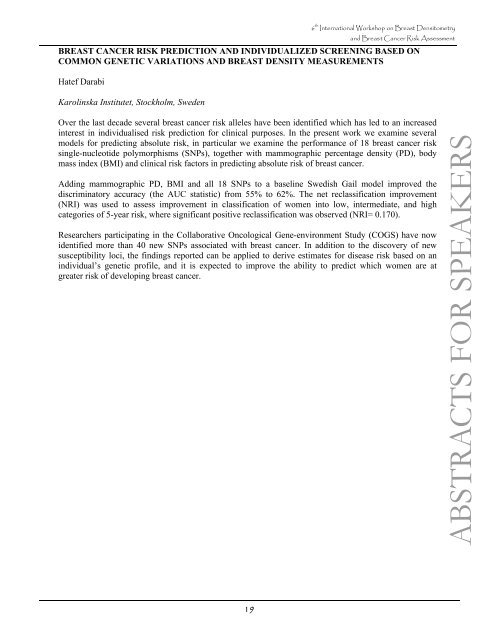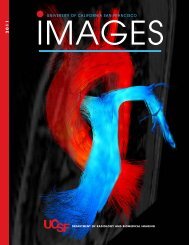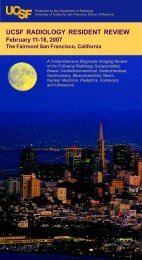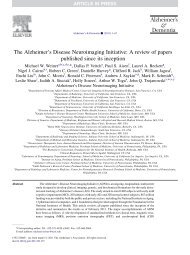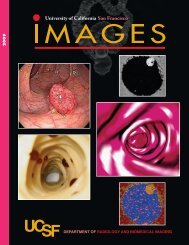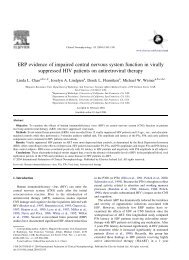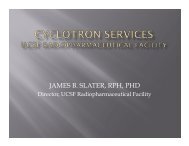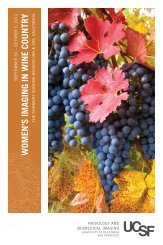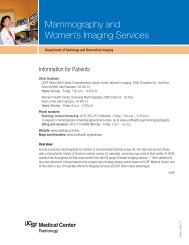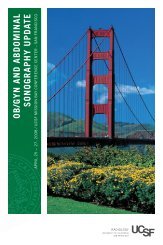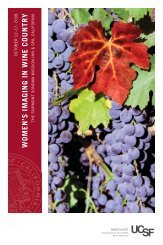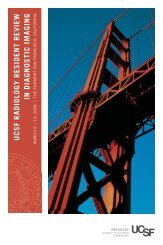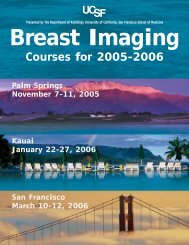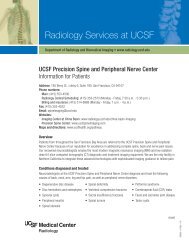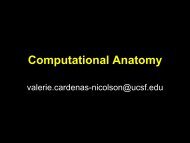6th International Workshop on Breast Densitometry and Breast ...
6th International Workshop on Breast Densitometry and Breast ...
6th International Workshop on Breast Densitometry and Breast ...
- No tags were found...
You also want an ePaper? Increase the reach of your titles
YUMPU automatically turns print PDFs into web optimized ePapers that Google loves.
6 th <str<strong>on</strong>g>Internati<strong>on</strong>al</str<strong>on</strong>g> <str<strong>on</strong>g>Workshop</str<strong>on</strong>g> <strong>on</strong> <strong>Breast</strong> <strong>Densitometry</strong><br />
<strong>and</strong> <strong>Breast</strong> Cancer Risk Assessment<br />
BREAST CANCER RISK PREDICTION AND INDIVIDUALIZED SCREENING BASED ON<br />
COMMON GENETIC VARIATIONS AND BREAST DENSITY MEASUREMENTS<br />
Hatef Darabi<br />
Karolinska Institutet, Stockholm, Sweden<br />
Over the last decade several breast cancer risk alleles have been identified which has led to an increased<br />
interest in individualised risk predicti<strong>on</strong> for clinical purposes. In the present work we examine several<br />
models for predicting absolute risk, in particular we examine the performance of 18 breast cancer risk<br />
single-nucleotide polymorphisms (SNPs), together with mammographic percentage density (PD), body<br />
mass index (BMI) <strong>and</strong> clinical risk factors in predicting absolute risk of breast cancer.<br />
Adding mammographic PD, BMI <strong>and</strong> all 18 SNPs to a baseline Swedish Gail model improved the<br />
discriminatory accuracy (the AUC statistic) from 55% to 62%. The net reclassificati<strong>on</strong> improvement<br />
(NRI) was used to assess improvement in classificati<strong>on</strong> of women into low, intermediate, <strong>and</strong> high<br />
categories of 5-year risk, where significant positive reclassificati<strong>on</strong> was observed (NRI= 0.170).<br />
Researchers participating in the Collaborative Oncological Gene-envir<strong>on</strong>ment Study (COGS) have now<br />
identified more than 40 new SNPs associated with breast cancer. In additi<strong>on</strong> to the discovery of new<br />
susceptibility loci, the findings reported can be applied to derive estimates for disease risk based <strong>on</strong> an<br />
individual’s genetic profile, <strong>and</strong> it is expected to improve the ability to predict which women are at<br />
greater risk of developing breast cancer.<br />
ABSTRACTS FOR SPEAKERS<br />
19


